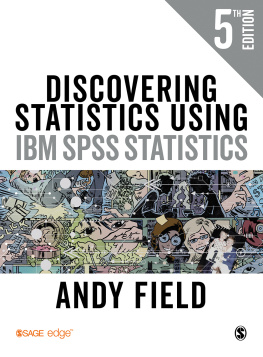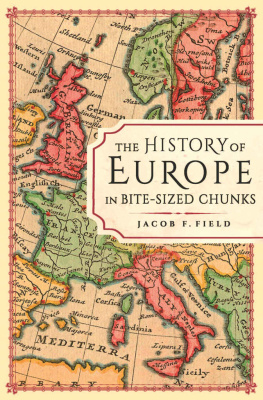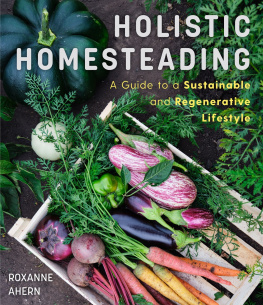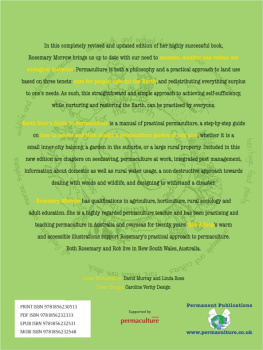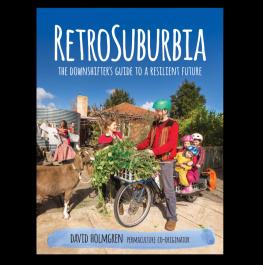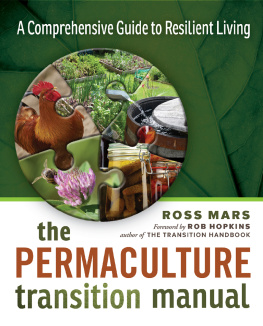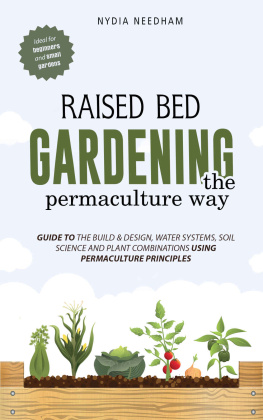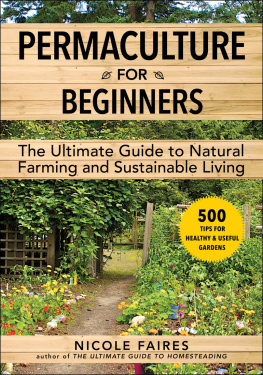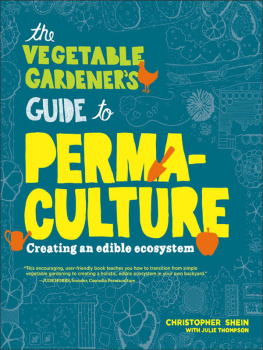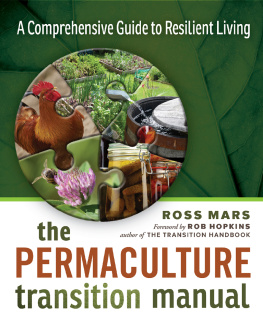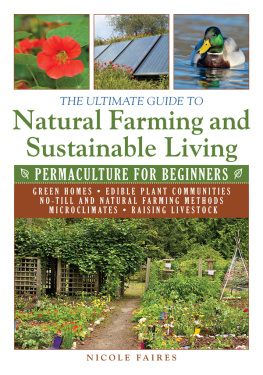PERMACULTURE
From Urban Gardening to Backyard Homestead,
The Comprehensive Guide to Permaculture and
The Sustainable Living.
FRANCIS FIELD
Copyright 2020 by FRANCIS FIELD
All rights reserved.
This document is geared towards providing exact and reliable information with regards to the topic and issue covered. The publication is sold with the idea that the publisher is not required to render accounting, officially permitted, or otherwise, qualified services. If advice is necessary, legal or professional, a practiced individual in the profession should be ordered.
From a Declaration of Principles which was accepted and approved equally by a Committee of the American Bar Association and a Committee of Publishers and Associations.
In no way is it legal to reproduce, duplicate, or transmit any part of this document in either electronic means or in printed format. Recording of this publication is strictly prohibited and any storage of this document is not allowed unless with written permission from the publisher. All rights reserved.
The information provided herein is stated to be truthful and consistent, in that any liability, in terms of inattention or otherwise, by any usage or abuse of any policies, processes, or directions contained within is the solitary and utter responsibility of the recipient reader. Under no circumstances will any legal responsibility or blame be held against the publisher for any reparation, damages, or monetary loss due to the information herein, either directly or indirectly.
Respective authors own all copyrights not held by the publisher.
The information herein is offered for informational purposes solely, and is universal as so. The presentation of the information is without contract or any type of guarantee assurance.
The trademarks that are used are without any consent, and the publication of the trademark is without permission or backing by the trademark owner. All trademarks and brands within this book are for clarifying purposes only and are owned by the owners themselves, not affiliated with this document.
Page intentionally left blank.
Dear reader,
Thank you for purchasing this book. We here at the True Green Farm commend you for taking an interest in green living, and we hope that youll find this book as enjoyable to read as we found it to write. All of our advice can be implemented by even a novice gardener, so you can start building a thriving permaculture garden the moment you put this book down.
Permaculture holds an incredible opportunity for shaping our futures. With the right knowledge, we can all become self-sufficient and create thriving ecosystemsand if we all join forces, we could even create a brighter, greener, and healthier future for generations to come.
If you enjoy this book, wed be so happy if you could leave a review and share it with your friends. It takes teamwork to build a better future!
Enjoy your evergreen life,
True Green Farm
Francis and Family
TABLE OF CONTENTS
Introduction
W e are at present, living in a period of considerable change and uncertainty with fraying ecosystems, and the rapid consumption of natural resources as humans seek out to dominate each corner of planet earth. We are at a point of climate instability, and the not so far decline of oil because of peak oil. The inescapable reality of this is that, with all this happening, the worlds population continues to grow.
We are currently facing numerous issues that threaten both humanity and the environment, such as the decline in peak oil, climatic chaos, energy crisis, shortages in water, increased extinctions, population explosion, and societal disruption. As such, many of us are concerned about how we can move from our current position to the position we need to survive and thrive on this planet. If we are able to build and rebuild our connections with each other, our relationships with nature, and all the systems that are in support of us, we can then maybe contribute to a growing worldwide chain of interrelationships. This network can become the basis for a community that is self-sustaining, which intertwines human activities with that of natural systems supporting a future of resilience and prosperity.
With this call for action, permaculture provides a system for us to battle or even eradicate these issues. Permaculture is done through stages of thought and processes in order to attain our goals. It is a layered method of development, whether it is soil development and food or community building and resilience. Figure 1 is a prime example of the different developmental stages of permaculture. It shows the economic aspects in green and purple, the social aspects in orange and the built environment is shown in blue. Permacultures main element is its ethics, which puts forward that we must care for the earth and people while integrating surplus sharing so that we can manifest change.
The principles are necessary to help in decisions about design and channel creativity combined with information. These principles are fashioned from the inner workings of nature. From that point, strategies and techniques are executed to bring ideas and creative designs into action. We form a holistic development model through the collection of tools from a wide variety of ecological frameworks such as organic gardening and biodynamics. As designers, our role is dependent on both climate and context. Permaculture is essentially our arrangement of elements in ecological design.
Permaculture Development Model
Fig. 1. Permaculture Developmental Model
(Source: TreeYo Permaculture)
What is permaculture?
The term permaculture, initially coined by Bill Mollison and David Holmgren in their book "Permaculture One" (1978) is a contraction of the words permanent and agriculture. It has several different definitions as it continues to evolve as more and more people partake in and contribute to it. One definition of permaculture is humans' way of consciously designing systems that support themselves: food, energy, transportation, buildings, technology, financial systems, and even human relationships.
The focus of permaculture is to imitate the patterns and the relationships that are a part of nature.
Ethics and Principles of Permaculture
Ethics are socially developed systems that control self-interest, providing a clearer understanding of both good and bad results. The ethics of permaculture impart a sense of place in a larger plan, serving as a guide to the right livelihood, working together with worldwide communities and the earth as opposed to self-reliance and lack of interest. There are three guiding ethics of permaculture, and these are people care , fair share (also involving the return of surplus to the system), and earth care .
If the needs of people are met in caring, yet simple ways, then their environment will in turn, prosper. To affect change, friendship and community-oriented endeavors are required; people care starts with oneself and then broadens to family, neighbors, and the broader communities. We must grow through self-reliance and personal responsibility.
When we focus on non-material prosperity, dealing with ourselves as well as other people without producing or consuming pointless material resources, self-reliance becomes plausible.
In our acceptance of personal responsibility regarding our circumstances as far as possible, as opposed to accusing others, we empower ourselves. On the off chance that we can perceive that more excellent knowledge lies within a group of individuals, we can work with others to realize the best results for all included. The permaculture approach concentrates on the positives and existing opportunities instead of the drawbacks, even in the most devastating circumstances.




